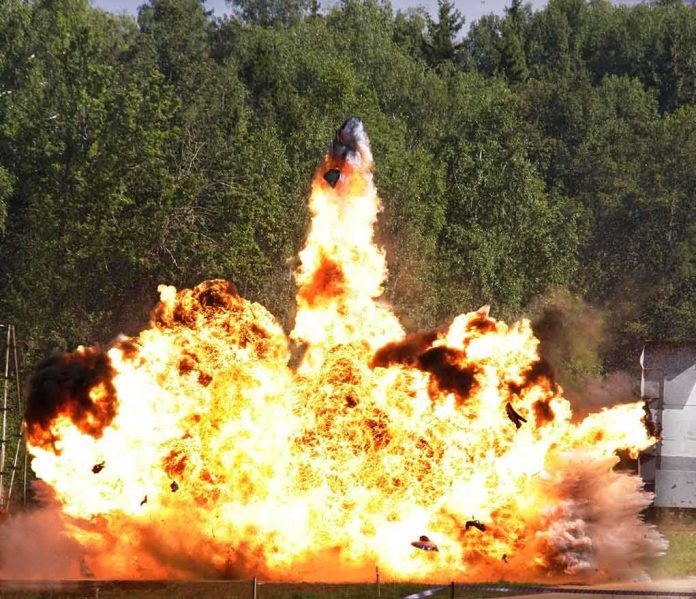
The devastating explosion at U.S. Steel’s historic Clairton Coke Works exposes the vulnerabilities of American industry under foreign ownership and reignites fierce debate over safety, sovereignty, and the constitutional rights of workers and communities.
Story Snapshot
- A fatal blast at Clairton Coke Works killed two, injured at least ten, and triggered renewed scrutiny of U.S. Steel’s future under Nippon Steel’s ownership.
- Longstanding concerns about worker safety, environmental hazards, and the impact of foreign control on critical American infrastructure have intensified.
- Union, community, and environmental groups are demanding independent investigations and policy reforms, while local jobs and regional stability hang in the balance.
- National debate grows over whether foreign investment jeopardizes U.S. industry, labor rights, and the security of American communities.
Explosion Exposes Deep-Seated Risks in a Critical American Industry
On August 11, 2025, a massive explosion tore through the Clairton Coke Works, a key U.S. Steel facility south of Pittsburgh. The incident claimed the lives of two workers and injured over ten others, sending shockwaves through the region and the broader steel industry. This tragedy unfolded just weeks after U.S. Steel completed its $15 billion sale to Japan’s Nippon Steel, placing one of America’s most iconic industrial assets under foreign control. The blast’s immediate aftermath raised urgent questions about whether longstanding safety, environmental, and oversight issues are being adequately addressed—or if new ownership brings fresh risks to the American workforce and community.
Clairton Coke Works, located in the storied Mon Valley, has symbolized American steelmaking might for more than a century. Yet, decades of decline, environmental lawsuits, and repeated workplace incidents have tarnished its legacy. The plant’s troubled history includes fires, explosions, and pollution complaints, with environmental groups and labor unions voicing repeated concerns about operational safety and the health of local residents. The recent transition to foreign ownership has further complicated the landscape, sparking debate about national security, regulatory accountability, and the preservation of American industrial autonomy. The workforce—represented by the United Steelworkers union—faces new uncertainty, as both their safety and livelihoods appear increasingly precarious.
Stakeholder Tensions and Community Fallout
The explosion set off a chain reaction among key stakeholders. U.S. Steel, now a subsidiary of Nippon Steel, must balance profitability and operational continuity against mounting public scrutiny. The United Steelworkers union is calling for a transparent, independent investigation into the causes of the blast, while Pennsylvania Governor Josh Shapiro has promised a thorough review and demanded answers for affected families. Environmental groups, most notably PennEnvironment, are urging state authorities to consider whether the plant remains fit to operate, citing its checkered safety and pollution record. Local community members, many of whom rely on the plant for employment, now face a grim calculus between economic survival and personal well-being, as the future of the facility remains uncertain.
This incident has also reignited longstanding political debates about the wisdom of allowing foreign entities to control strategic U.S. infrastructure. Critics argue that foreign ownership may undermine American sovereignty, weaken regulatory oversight, and prioritize overseas interests above the needs of U.S. workers and communities. Proponents claim such investment brings needed capital and modernization, but the explosion has cast doubt on whether those benefits outweigh the risks to safety, jobs, and local autonomy. The balance of power among corporate executives, state officials, labor unions, and environmental advocates will shape the plant’s—and the region’s—future.
Broader Implications: Policy, Industry, and American Values
The consequences of the Clairton incident extend well beyond the plant gates. In the short term, workers and families are grieving losses, and the local economy faces disruption as plant operations remain suspended. The investigation’s outcome may lead to stricter safety and environmental regulations or even the closure of the facility, putting hundreds of jobs at risk in a community already battered by industrial decline. Experts warn that this tragedy could accelerate industry-wide reforms, with aging steel plants across the country facing demands for modernization or decommissioning to prevent further disasters.
Fatal explosion at U.S. Steel's plant raises questions about its future, despite heavy investment https://t.co/5DgF4lHx2k
— Dayton Daily News (@daytondailynews) August 17, 2025
For conservatives who value American sovereignty, the right to work, and the protection of communities from government overreach or reckless corporate behavior, the situation at Clairton Coke Works is a sobering reminder. It raises the alarm about the dangers of foreign control over vital industries, the need for robust safety standards, and the imperative to defend American workers’ rights. The plant’s fate will serve as a bellwether for how the nation navigates the tension between economic investment, national security, and the preservation of values that have underpinned American prosperity for generations. The debate is far from over, and its outcome will resonate across Pennsylvania and the entire country.
Sources:
U.S. Steel Explosion at Clairton Coke Works: What Happened and What’s Next?
Explosion at U.S. Steel Clairton Plant Kills 2 Workers, Injures 10
Explosion at Clairton Coke Works Renews Scrutiny of U.S. Steel’s Environmental Record
Fatal Explosion at U.S. Steel’s Plant Raises Questions About Its Future, Despite Heavy Investment







